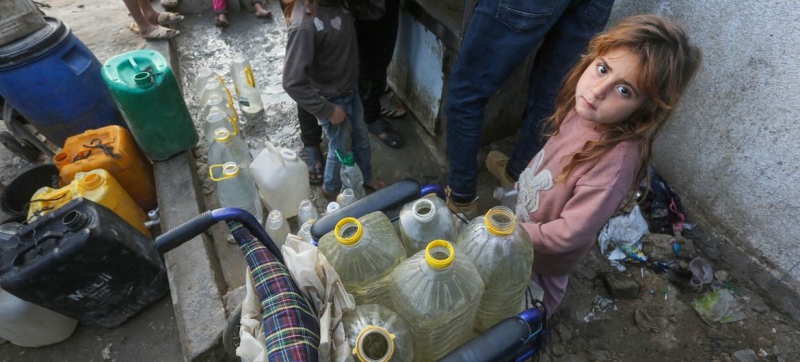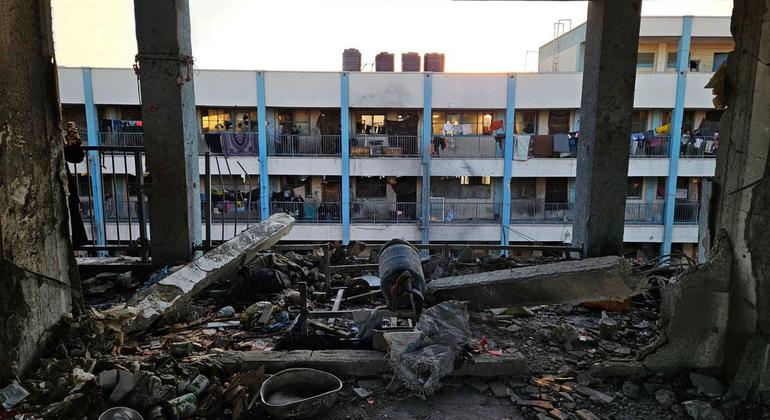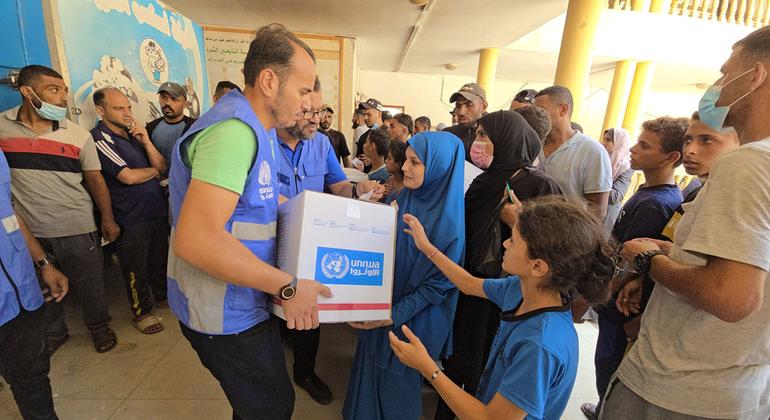
UNRWA liquidation could bring humanitarian work in Gaza to a halt. UNRWA faces uncertainty amid Israeli parliamentary decisions Humanitarian Aid
Aid workers in Gaza continue to work in difficult circumstances following a fragile ceasefire. Speaking from East Jerusalem, Juliette Touma, UNRWA’s Director of Communications, described how dedicated aid workers are coping with a volatile situation exacerbated by recent Israeli parliamentary decisions and escalating violence in the West Bank.
“We have thousands of dedicated staff in Gaza working around the clock to deliver aid to those in need,” says Tuma. While the first three days of the truce have already brought some relief, the upcoming implementation of two bills passed by the Israeli parliament threatens this vital work. “These bills were passed at the end of October, and the 90-day deadline for their implementation expires in a few days,” explains Tuma. The uncertainty surrounding these laws has made UNRWA’s work significantly more difficult. “We have not received any communication from the Israeli government about plans to implement them,” says Tuma. Despite this, she reiterates the agency’s commitment to its mission: “For now, we continue to work in the occupied Palestinian territories, including the West Bank, East Jerusalem and the Gaza Strip.”

UNRWA, the UN agency supporting Palestinian refugees, employs some 17,000 Palestinians in Gaza and the West Bank, most of them teachers, but also medics, drivers and sanitation workers. “Everyone is incredibly dedicated,” says Tuma, acknowledging the staff’s deep concerns. “They continue to work and everyone wants the agency to continue until a solution is found for the Palestinian refugees.” Adding to the complication is the expiration of visas for international staff on January 29. “We will, of course, continue to apply for visa extensions,” says Tuma. She points to a wider problem: “Without UNRWA, it will be impossible to continue humanitarian work in Gaza.” She is also concerned about the situation in the West Bank, where a “silent war” continues, characterized by ongoing violence and Israeli military operations. “This was true even before October 7, when the war in Gaza began,” she adds.

UNRWA’s work in the West Bank is extremely important for the local population, especially in the area of education: the agency provides education to 50,000 children in refugee camps. However, these efforts are constantly under threat. “Every military operation primarily deprives children of education,” says Tuma.
Every military operation primarily deprives children of education
Despite the solidarity of UN agencies, member states and the Office of the Secretary-General, the path forward now appears difficult and uncertain. Tuma stresses the need for immediate action: “It is important that Israeli laws are not implemented and that UNRWA continues to provide humanitarian assistance to those in need.” For Tuma, the solution lies in addressing the root causes of the conflict. “It is time to end the Israeli-Palestinian conflict once and for all,” she says, “and thereby finally resolve the issue of Palestinian refugees.”
As the January deadline approaches, the stakes become even higher for UNRWA and those it helps.
